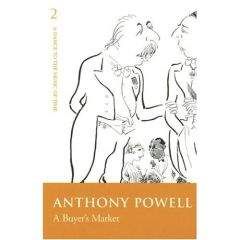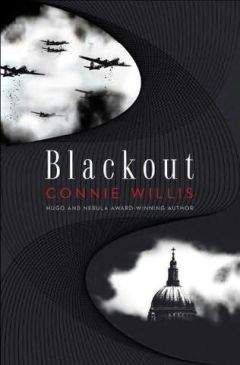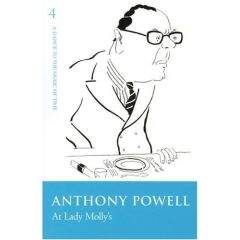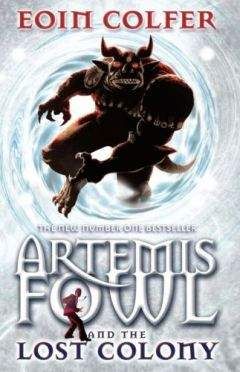W. Ainsworth - Rookwood
"I shall not heed her neglect. Graced with my title, I doubt not, were it my pleasure to seek a bride amongst those of gentle blood, I should not find all indifferent to my suit."
"Possibly not. Yet what might weigh with others, would not weigh with her. There are qualities you lack which she has discovered in another."
"In whom?"
"In Ranulph Rookwood."
"Is he her suitor?"
"I have reason to think so."
"And you would have me abandon my own betrothed love, to beguile from my brother his destined bride? That were to imitate the conduct of my grandsire, the terrible Sir Reginald, towards his brother Alan."
The sexton answered not, and Luke fancied he could perceive a quivering in the hands that grasped his body for support. There was a brief pause in their conversation.
"And who is Eleanor Mowbray?" asked Luke, breaking the silence.
"Your cousin. On the mother's side a Rookwood. 'Tis therefore I would urge your union with her. There is a prophecy relating to your house, which seems as though it would be fulfilled in your person and in hers:
"When the stray Rook shall perch on the topmost bough,
There shall be clamour and screaming, I trow;
But of right, and of rule, of the ancient nest,
The Rook that with Rook mates shall hold him possest."
"I place no faith in such fantasies," replied Luke; "and yet the lines bear strangely upon my present situation."
"Their application to yourself and Eleanor Mowbray is unquestionable," replied the sexton.
"It would seem so indeed," rejoined Luke; and he again sank into abstraction, from which the sexton did not care to arouse him.
The aspect of the country had materially changed since their descent of the hill. In place of the richly-cultivated district which lay on the other side, a broad brown tract of waste land spread out before them, covered with scattered patches of gorse, stunted fern, and low brushwood, presenting an unvaried surface of unbaked turf. The shallow coat of sod was manifested by the stones that clattered under the horse's hoofs as he rapidly traversed the arid soil, clearing with ease to himself, though not without discomfort to the sexton, every gravelly trench, natural chasm, or other inequality of ground that occurred in his course. Clinging to his grandson with the tenacity of a bird of prey, Peter for some time kept his station in security; but, unluckily, at one dike rather wider than the rest, the horse, owing possibly to the mismanagement, intentional or otherwise, of Luke, swerved, and the sexton, dislodged from his "high estate," fell at the edge of the trench, and rolled incontinently to the bottom.
Luke drew in the rein to enquire if any bones were broken; and Peter presently upreared his dusty person from the abyss, and without condescending to make any reply, yet muttering curses, "not loud, but deep," accepted his grandson's proffered hand, and remounted.
While thus occupied, Luke fancied he heard a distant shout, and noting whence the sound proceeded—the same quarter by which he had approached the heath—he beheld a single horseman, spurring in their direction, at the top of his speed; and to judge from the rate at which he advanced, it was evident he was anything but indifferently mounted. Apprehensive of pursuit, Luke expedited the sexton's ascent; and that accomplished, without bestowing further regard upon the object of his solicitude, he resumed his headlong flight. He now thought it necessary to bestow more attention to his choice of road, and, perfectly acquainted with the heath, avoided all unnecessary hazardous passes. In spite of his knowledge of the ground, and the excellence of his horse, the stranger sensibly gained upon him. The danger, however, was no longer imminent.
"We are safe," cried Luke; "the limits of Hardchase are past. In a few seconds we shall enter Davenham Wood. I will turn the horse loose, and we will betake ourselves to flight amongst the trees. I will show you a place of concealment. He cannot follow us on horseback, and on foot I defy him."
"Stay," cried the sexton. "He is not in pursuit—he takes another course—he wheels to the right. By Heaven! it is the Fiend himself upon a black horse, come for Bow-legged Ben. See, he is there already."
The horseman had turned, as the sexton stated, careering towards a revolting object, at some little distance on the right hand. It was a gibbet, with its grisly burden. He rode swiftly towards it, and, reining in his horse, took off his hat, bowing profoundly to the carcase that swung in the morning breeze. Just at that moment a gust of air catching the fleshless skeleton, its arms seemed to be waved in reply to the salutation. A solitary crow winged its flight over the horseman's head as he paused. After a moment's halt, he wheeled about, and again shouted to Luke, waving his hat.
"As I live," said the latter, "it is jack Palmer."
"Dick Turpin, you mean," rejoined the sexton. "He has been paying his respects to a brother blade. Ha, ha! Dick will never have the honour of a gibbet; he is too tender of the knife. Did you mark the crow? But here he comes." And in another instant Turpin was by their side.
| Contents |
CHAPTER II
A GIPSY ENCAMPMENT
THE top of the morning to you, gem'men," said Turpin, as he rode up at an easy canter. "Did you not hear my halloo? I caught a glimpse of you on the hill yonder. I knew you both, two miles off; and so, having a word or two to say to you, Luke Bradley, before I leave this part of the country, I put Bess to it, and she soon brought me within hail. Bless her black skin," added he, affectionately patting his horse's neck, "there's not her match in these parts, or in any other; she wants no coaxing to do her work—no bleeders for her. I should have been up with you before this had I not taken a cross cut to look at poor Ben.
"One night, when mounted on my mare,
To Bagshot Heath I did repair,
And saw Will Davies hanging there,
Upon the gibbet bleak and bare,
With a rustified, fustified, mustified air.
Excuse my singing. The sight of a gibbet always puts me in mind of the Golden Farmer. May I ask whither you are bound, comrades?"
"Comrades!" whispered the sexton to Luke; "you see he does not so easily forget his old friends."
"I have business that will not admit of delay," rejoined Luke; "and, to speak plainly—"
"You want not my society," returned Turpin; "I thought as much. Natural enough! You have got an inkling of your good fortune. You have found out you are a rich man's heir, not a poor wench's bastard. No offence, I'm a plain-spoken man, as you will find, if you know it not already. I have no objection to your playing these fine tricks on others, though it won't answer your turn to do so with me."
"Sir!" exclaimed Luke, sharply.
"Sir to you," replied Turpin. "Sir Luke—as I suppose you would now choose to be addressed. I am aware of all. A nod is as good as a wink to me. Last night I learnt the fact of Sir Piers's marriage from Lady Rookwood—ay, from her ladyship. You stare—and old Peter, there, opens his ogles now. She let it out by accident; and I am in possession of what can alone substantiate your father's first marriage, and establish your claims to the property."
"The devil!" cried the sexton; adding, in a whisper to Luke, "You had better not be precipitate in dropping so obliging an acquaintance."
"You are jesting," said Luke to Turpin.
"It is ill jesting before breakfast," returned Dick: "I am seldom in the mood for a joke so early. What if a certain marriage certificate had fallen into my hand?"
"A marriage certificate!" echoed Luke and the sexton simultaneously.
"The only existing proof of the union of Sir Piers Rookwood with Susan Bradley," continued Turpin. "What if I had stumbled upon such a document—nay, more, if I knew where to direct you to it?"
"Peace!" cried Luke to his tormentor; and then addressing Turpin, "If what you say be true, my quest is at an end. All that I need, you appear to possess. Other proofs are secondary to this. I know with whom I have to deal. What do you demand for that certificate?"
"We will talk about the matter after breakfast," said Turpin. "I wish to treat with you as friend with friend. Meet me on those terms, and I am your man; reject my offer, and I turn my mare's head, and ride back to Rookwood. With me now rests all your hopes. I have dealt fairly with you, and I expect to be fairly dealt with in return. It were idle to say, now I have an opportunity, that I should not turn this luck to my account. I were a fool to do otherwise. You cannot expect it. And then I have Rust and Wilder to settle with. Though I have left them behind, they know my destination. We have been old associates. I like your spirit—I care not for your haughtiness; but I will not help you up the ladder to be kicked down myself. Now you understand me. Whither are you bound?"
"To Davenham Priory, the gipsy camp."
"The gipsies are your friends?"
"They are."
"I am alone."
"You are safe."
"You pledge your word that all shall be on the square? You will not mention to one of that canting crew what I have told you?"
"With one exception, you may rely upon my secrecy."
"Whom do you except?"
"A woman."
"Bad! never trust a petticoat."
"I will answer for her with my life."
"And for your granddad there?"
"He will answer for himself," said Peter. "You need not fear treachery in me. Honour among thieves, you know."
"Or where else should you seek it?" rejoined Turpin; "for it has left all other classes of society. Your highwayman is your only man of honour. I will trust you both; and you shall find you may trust me. After breakfast, as I said before, we will bring the matter to a conclusion. Tip us your daddle, Sir Luke, and I am satisfied. You shall rule in Rookwood, I'll engage, ere a week be flown; and then—but so much parleying is dull work; let's make the best of our way to breakfast."
And away they cantered.
A narrow bridle-path conducted them singly through the defiles of a thick wood. Their route lay in the shade, and the air felt chilly amidst the trees, the sun not having attained sufficient altitude to penetrate its depths, while overhead all was warmth and light. Quivering on the tops of the timber, the horizontal sunbeams created, in their refraction, brilliant prismatic colourings, and filled the air with motes like golden dust. Our horsemen needed not the sunshine or the shade. Occupied each with his own train of thought, they silently rode on.
Davenham Wood, through which they urged their course, had, in the olden time, been a forest of some extent. It was then an appendage to the domains of Rookwood, but had passed from the hands of that family to those of a wealthy adjoining landowner and lawyer, Sir Edward Davenham, in the keeping of whose descendants it had ever after continued.
A noble wood it was, and numbered many patriarchal trees. Ancient oaks, with broad gnarled limbs, which the storms of five hundred years had vainly striven to uproot, and which were now sternly decaying; gigantic beech-trees, with silvery stems shooting smoothly upwards, sustaining branches of such size, that each, dissevered, would in itself have formed a tree, populous with leaves, and variegated with rich autumnal tints; the sprightly sycamore, the dark chestnut, the weird wych-elm, the majestic elm itself, festooned with ivy, every variety of wood, dark, dense, and intricate, composed the forest through which they rode; and so multitudinous was the timber, so closely planted, so entirely filled up with a thick matted vegetation, which had been allowed to collect beneath, that little view was afforded, had any been desired by the parties, into the labyrinth of the grove.
Tree after tree, clad in the glowing livery of the season, was passed, and as rapidly succeeded by others. Occasionally a bough projected over their path, compelling the riders to incline their heads as they passed; but, heedless of such difficulties, they pressed on. Now the road grew lighter, and they became at once sensible of the genial influence of the sun. The transition was as agreeable as instantaneous. They had opened upon an extensive plantation of full-grown pines, whose tall, branchless stems, grew up like a forest of masts, and freely admitted the pleasant sunshine. Beneath those trees, the soil was sandy and destitute of all undergrowth, though covered with brown, hair-like fibres and dry cones, shed by the pines. The agile squirrel, that freest denizen of the grove, starting from the ground as the horsemen galloped on, sprang up the nearest tree, and might be seen angrily gazing at the disturbers of his haunts, beating the branches with his fore-feet, in expression of displeasure; the rabbit darted across their path; the jays flew screaming amongst the foliage; the blue cushat, scared at the clatter of the horses' hoofs, sped on swift wing into quarters secure from their approach; while the particoloured pies, like curious village gossips, congregated to peer at the strangers, expressing their astonishment by loud and continuous chattering.
Though so gentle of ascent as to be almost imperceptible, it was still evident that the path they were pursuing gradually mounted a hill-side; and when at length they reached an opening, the view disclosed the eminence they had insensibly won. Pausing for a moment upon the brow of the hill, Luke pointed to a stream that wound through the valley, and, tracing its course, indicated a particular spot amongst the trees. There was no appearance of a dwelling-house—no cottage roof, no white canvas shed, to point out the tents of the wandering tribe whose abode they were seeking. The only circumstance betokening that it had once been the haunt of man, were a few grey monastic ruins, scarce distinguishable from the stony barrier by which they were surrounded; and the sole evidence that it was still frequented by human beings was a thin column of pale blue smoke, that arose in curling wreaths from out the brake, the light-coloured vapour beautifully contrasting with the green umbrage whence it issued.
"Our destination is yonder," exclaimed Luke, pointing in the direction of the vapour.
"I am glad to hear it," cried Turpin, "as well as to perceive there is someone awake. That smoke holds out a prospect of breakfast. No smoke without fire, as old Lady Scanmag said; and I'll wager a trifle that fire was not lighted for the fayter fellows to count their fingers by. We shall find three sticks, and a black pot with a kid seething in it, I'll engage. These gipsies have picked out a prettyish spot to quarter in—quite picturesque, as one may say—and but for that tell-tale smoke, which looks for all the world like a Dutch skipper blowing his morning cloud, no one need know of their vicinity. A pretty place, upon my soul."
The spot, in sooth, merited Turpin's eulogium. It was a little valley, in the midst of wooded hills, so secluded, that not a single habitation appeared in view. Clothed with timber to the very summits, excepting on the side where the party stood, which verged upon the declivity, these mountainous ridges presented a broken outline of foliage, variegated with tinted masses of bright orange, umber, and deepest green. Four hills hemmed in the valley. Here and there, a grey slab of rock might be discerned amongst the wood, and a mountain-ash figured conspicuously upon a jutting crag immediately below them. Deep sunken in the ravine, and concealed in part from view by the wild herbage and dwarf shrubs, ran a range of precipitous rocks, severed, it would seem, by some diluvial convulsion, from the opposite mountain side, as a corresponding rift was there visible, in which the same dip of strata might be observed, together with certain ribbed cavities, matching huge bolts of rocks which had once locked these stony walls together.




